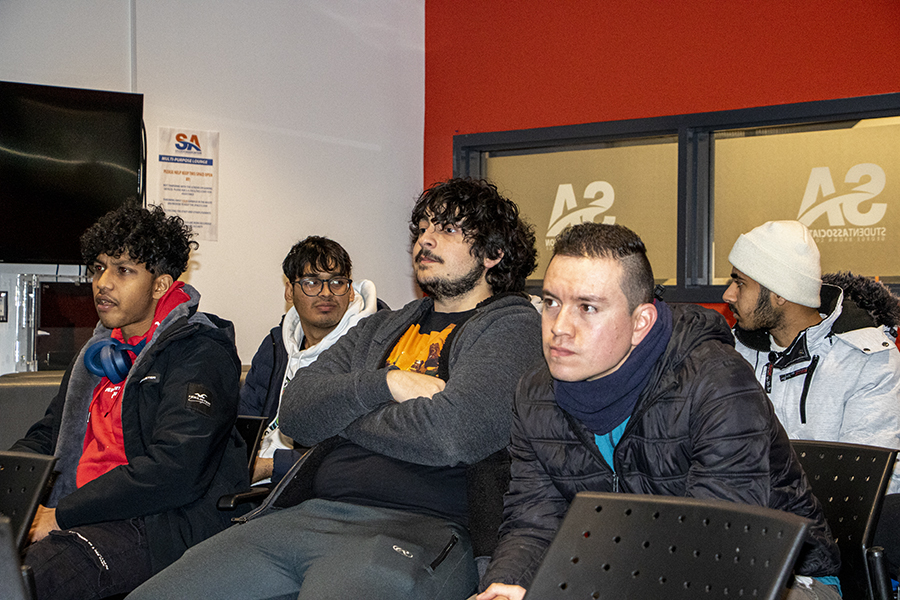An issue that continues to persist was the spark of conversation.
The plight of international students in Canada was highlighted in a screening organized by Angeline Nijmeh, director of education and equity with the Student Association (SA).
Held at the George Brown College Casa Loma campus on Nov. 30, many turned out to screen a television show and have a productive discussion on the issues that students – many of whom are international – face themselves.
The screening stirred a lot of emotions among the audience, as it brought up heavy topics usually ignored by most.
The show aired was Fifth Estate episode titled ‘Sold a Lie’, where the host explores agencies in India that lure students to Canada, on fake promises for a better future.
The fee hike by the colleges of Ontario is astoundingly high for courses and the discrepancy between the fee of a domestic student and that of an international student is becoming a cause of concern for many.
“The public colleges received a total of $1.7 billion in tuition fees from international students. That’s 68 per cent of all revenue. And the average Ontario undergraduate tuition for international students increased by 192 per cent between 2011 to 2021,” said Nijmeh during the screening.
The hike has made education unfeasible for many, putting a lot of pressure on the students as they come to the country with hopes and dreams.
A case investigated in the episode was about a private college in Ontario named Alpha College of Business and Technology, an affiliate of St. Lawrence College.
The college accepted numerous students, more than it could hold, and had to suspend spring semester for most of their students This put international students at risk with their study permits.
The suspension resulted in students protesting on the streets, showcasing that international students are nothing but money minting machines for colleges.
The screening was followed by a discussion, where many students shared similar stories about being in a tough spot at one point or the other during their journey in Canada.
Students raised various concerns during the discussion including the teaching standards after paying five times the domestic fee.
“I’m doing six courses right now and out of those courses, just one is a good course. The rest of the five, to be honest, are not helpful. Most of the time it is self-learning because the teachers are not teaching us, they are just unloading materials on Blackboard. I’m paying $17,000 for that. This seems like an unfair trade,” said Jose Suavita, a Business administration and Finance student.
Talking about his experience, he recalls being excited to start a life in a country with millions of opportunities, however, now he does not feel the same anymore.
“Sometimes I want to just quit this. I want to go back to my country. But then I think not to. I have already paid… it feels a little frustrating”
When domestic students were questioned if they resonated with what was being shown on screen, many were astounded because that is not the college life they have experienced.
Statistics that came out during the discussion were hard to ignore, revealing that the government funds $1.9-billion to public education while students’ tuition contribution accounts for $2.5-billion.
The hardships are real and while director Nijmeh has taken the first step and started the conversation, it seems like students want their voices – and concerns – to be heard by all, so action can be taken.


